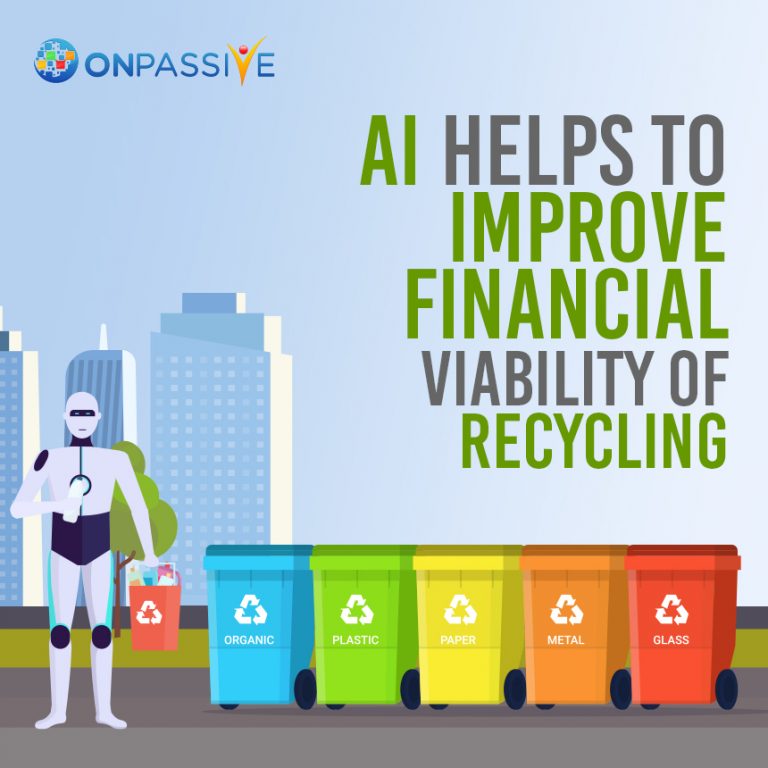
The power of artificial intelligence for smart robots, sensors, and vision systems make their way into every industry across the globe.
In many ways, some transformations deal with the surroundings in handling responsibilities. One of the most significant faults that humans have towards the planet on this present day is to optimize every recycling process helping live as an environmentally sustainable life.
Technology act as the required impetus that humans need to save the environment in the best possible ways. Artificial intelligence is slowly transforming as a recycling waste.
The advantage of employing AI in recycling efforts is a double-layered in most scenarios:
1. They would quickly sort the waste coming into the recycling facility.
2. They also help analyze this sorted waste and identify specific types of waste, such as different plastic grades.
The artificial intelligence systems programmed to identify the incoming waste for potential pathogens from contaminated food products.
The core tools of artificial intelligence are deep learning and visual recognition that enables recycling facility.
Another approach is employing robots, or artificial intelligence enabled trucks to collect this waste. It would allow sorting earlier into the process and speeds up the entire recycling process.
Further, vending machines engineered helps to reverse their role. Adding to their dispensing products, they begin to accept this waste cans, plastic bags or bottles by sorting them appropriately for further processing. It would be easier for the general populace to contribute and participate in this process.
Thus, making the community an integral part of environmentally sustainable living practices.
A few organizations across the world are working towards integrating artificial intelligence with the recycling process.
Despite this success, the path ahead remains replete with multiple opportunities entirely.
The principal concerns discussed in the following sections are:
Revolutionize Sorting
All types of waste need to treat similarly. Every form of waste based on their specific grades in sub-groups requires being treated in a particular manner to ensure that they appropriately recycled without harming planet earth in some other way.
Therefore, the core challenges of a recycling facility are to sort the incoming waste. Artificial intelligence used to increase the speed of the sorting process while ensuring that human errors reduce considerably.
Machine Learning and artificial intelligence sort incoming waste into broader classifications such as plastic, wood, and glass. The machine can then sort the plastic based on its grade, timber based on the pieces’ composition, and glass found on their mark.
It would help to ensure that the waste reaches the appropriate recycling facility and makes it successful back to use, rather than filling up a landfill.
Recycling facilities cater to a specific retail organization, the sorting mechanism designed to meet their particular needs.
Thus recycling facility is the primary sorting directed at differentiating plastic from paper from a glass. The glass bottles subjected to the secondary sorting process where they sorted according to their size.
A significant advantage of such a layered sorting process is that the concerned organizations can keep track of the amount of waste that can recycle. It would help organizations to design environmental policies addressing loopholes that identify during the recycling procedure.
Future of AI
The current phase of developing artificial intelligence for recycling facilities focused on aspects of deep learning.
One of the principal goals of introducing profound learning aspects of artificial intelligence in the recycling industry is to address and resolve the challenges that these facilities will suffer.
Improving the efficiency of a recycling facility is one of the most significant objectives of any organization at this given time. Profound learning aspects would help immensely in that capacity.
Introducing profound learning aspects would eliminate the handpicking station and make the entire process much smoother.
The automation of sorting helps to ensure recycling processes that do not breakdown due to foreign materials in line. It is essential to understand the speed of waste production and the capacity to recycle them, which is not balanced.
In an ideal situation, the waste produced is proportional to those recycled, and speed is the only factor that helps offset scaling.
Therefore, a prime focus on integrating artificial intelligence helps accelerate recycling with significant support from Big Data. Big Data is the plethora of information collected and put to use with various forms of machine learning already in place across the entire world.
Conclusion
Artificial intelligence is being deployed to many industries and is gaining a momentum that holds the capability to change how we react, operate, and comprehend regular activities. These possibilities of artificial intelligence, machine learning, and Big Data are immense.
Therefore, their application to any industry is bound to kick-start a revolutionizing effect.
Furthermore, living with sustainability is of utmost importance in the present world.
Thus, its rightfully expected that artificial intelligence introduced into recycling facilities is in full swing within the next few years.



Ma Ra him
3 years ago
Cheng Vang
3 years ago